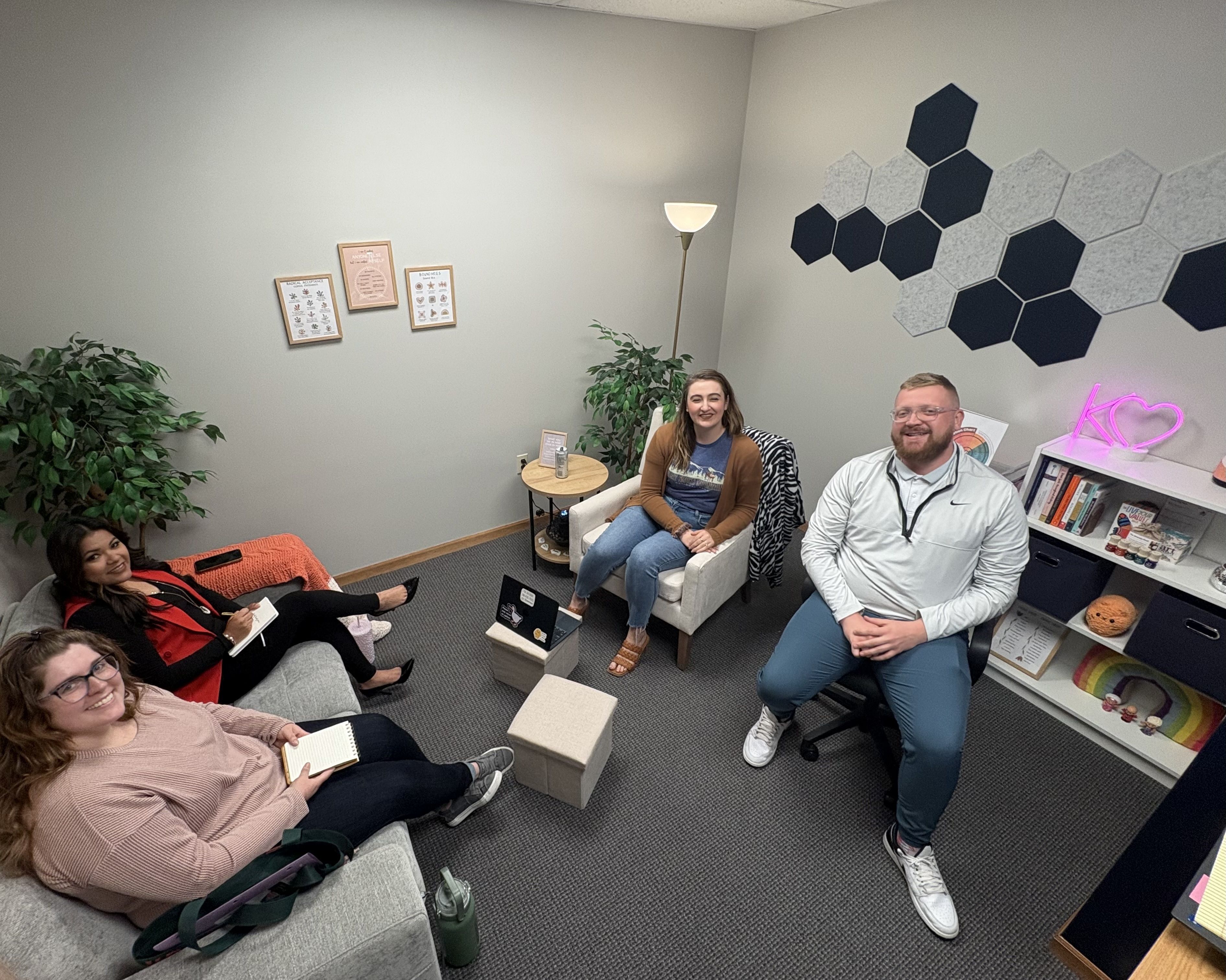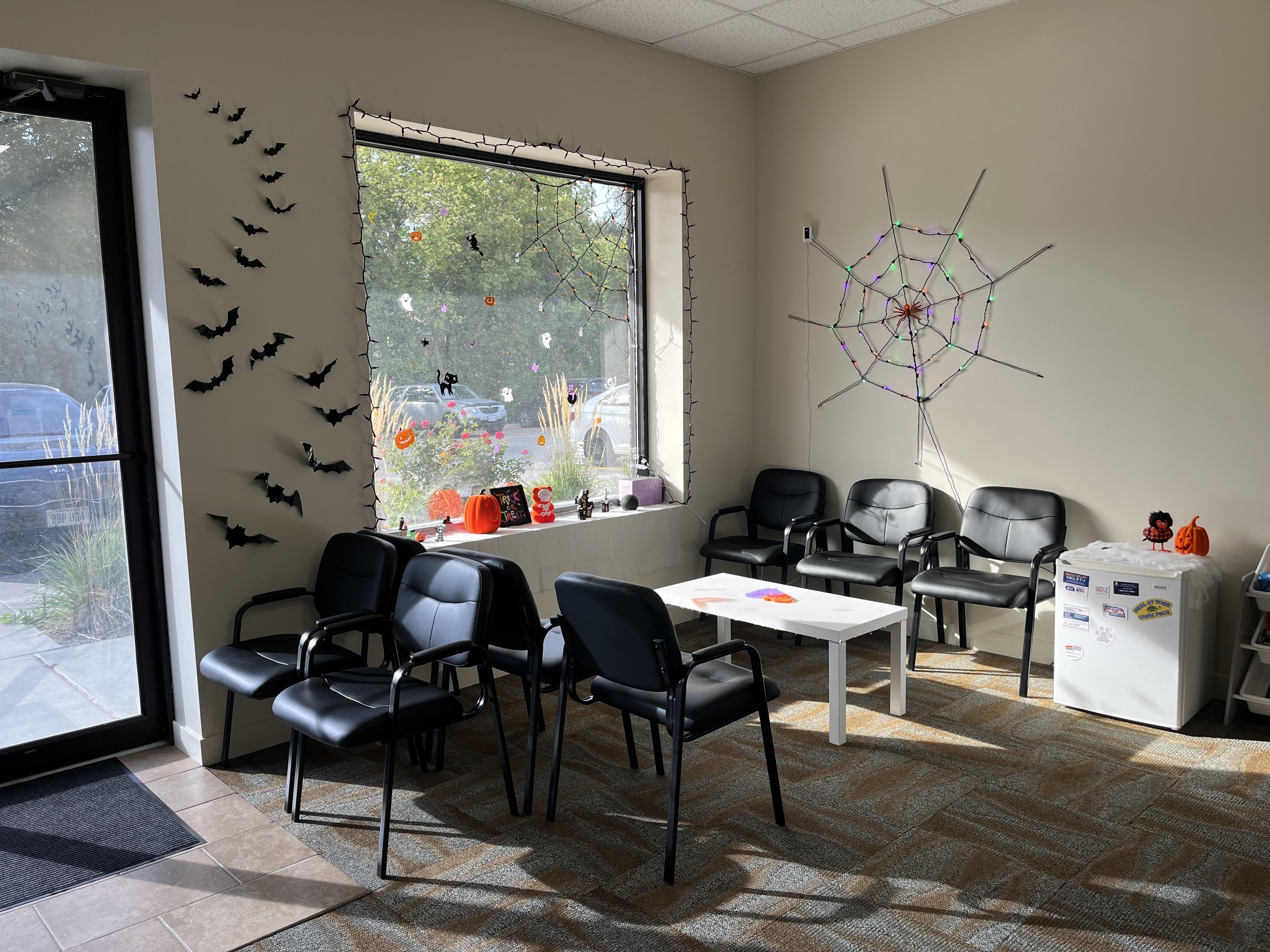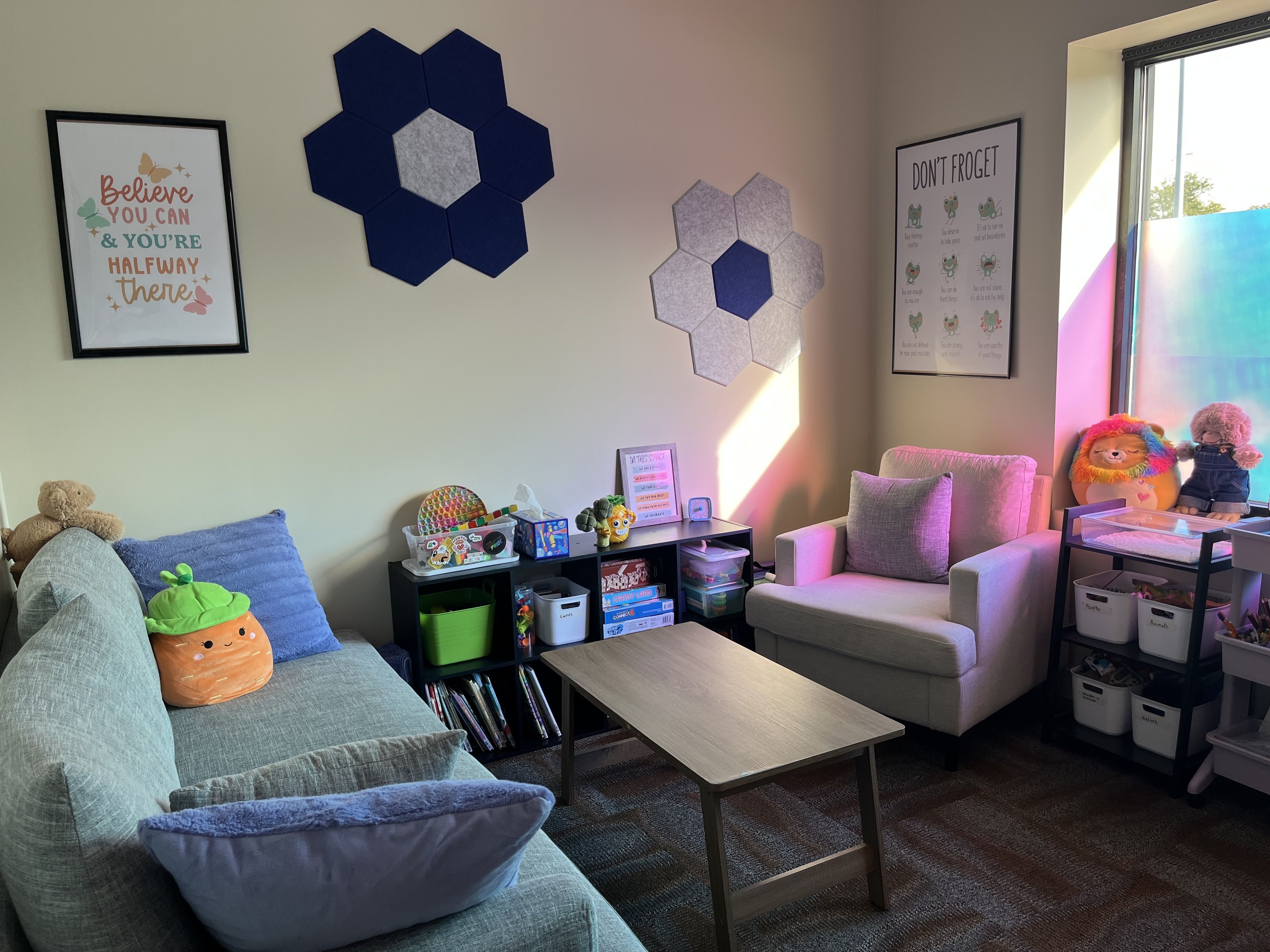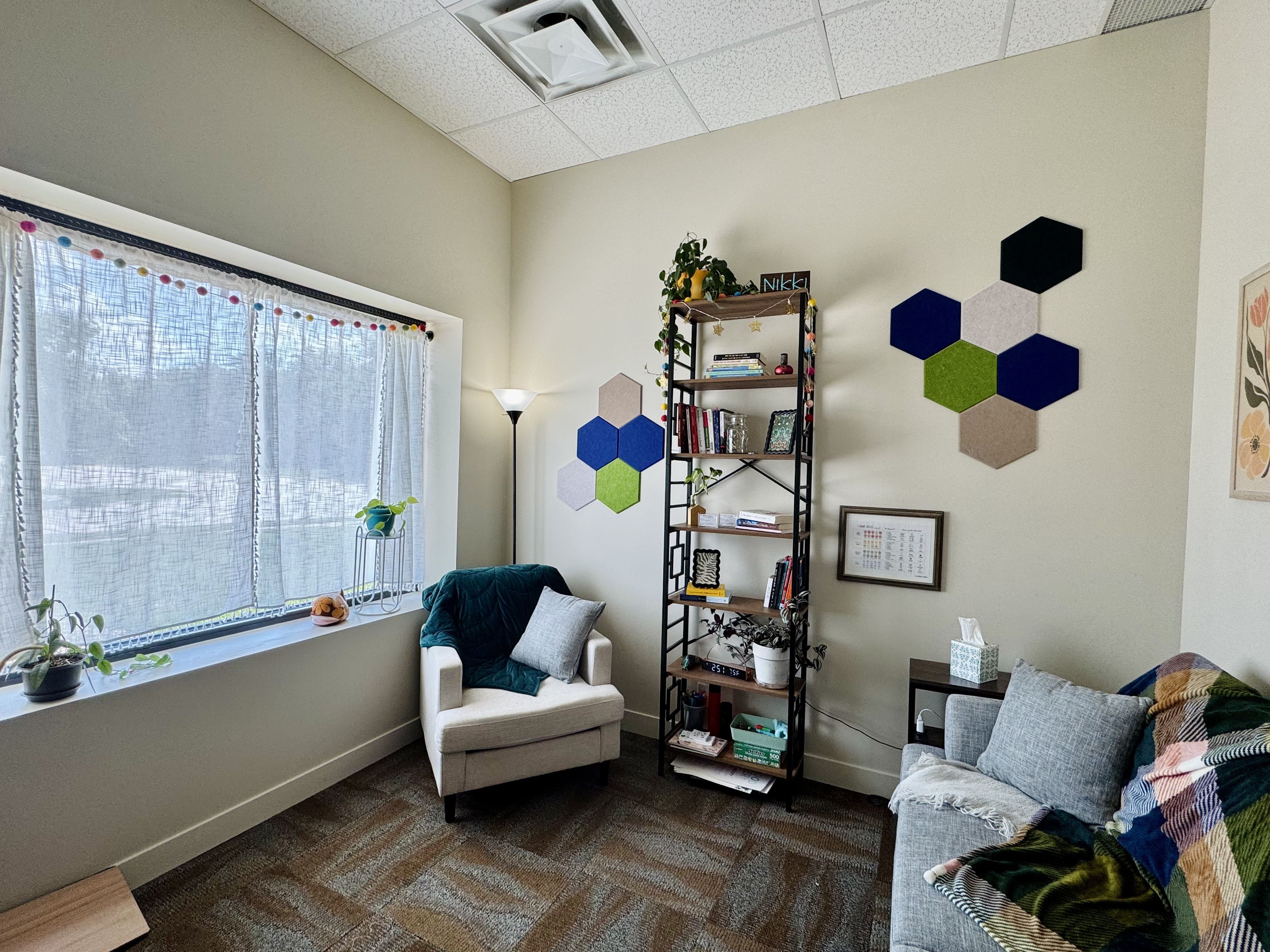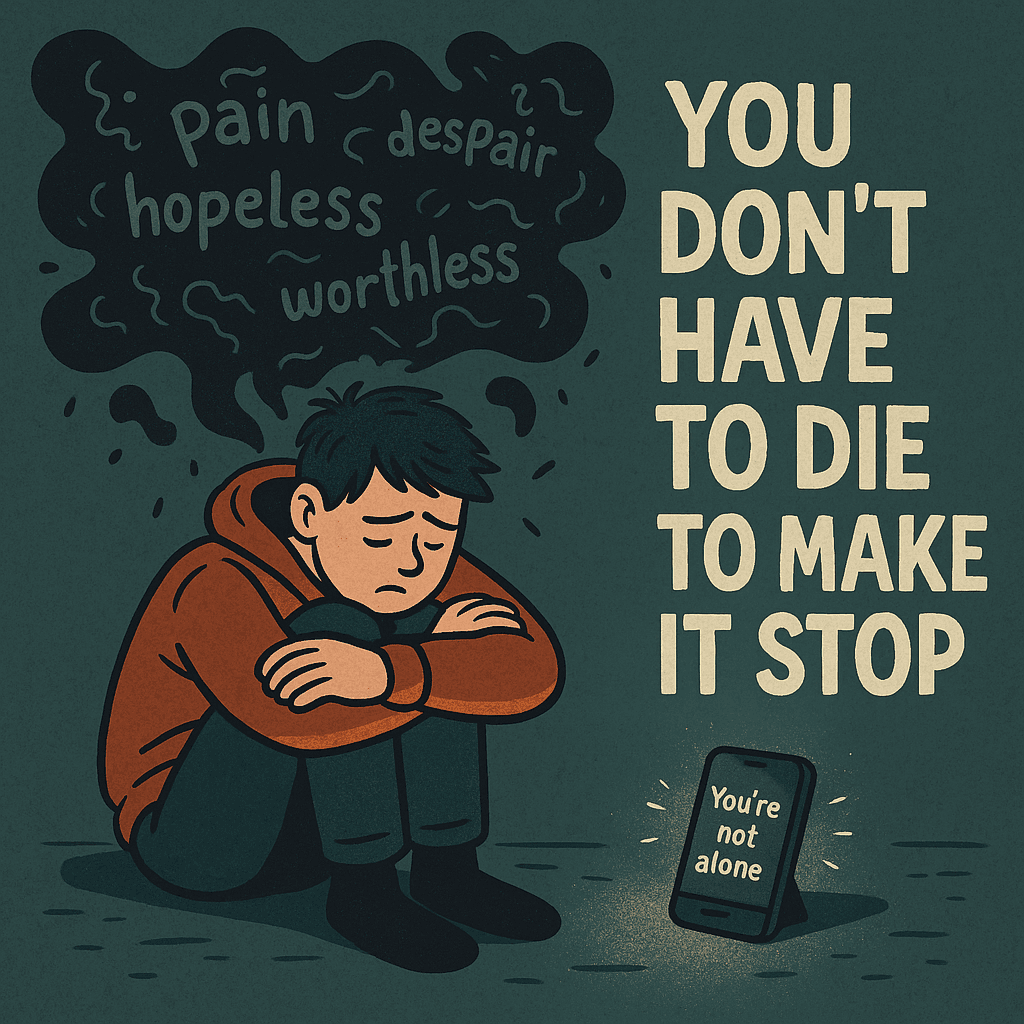
There are days where getting out of bed feels like bullsh*t. Where existing feels too loud. Where your own brain feels like it’s been hijacked by a troll who won’t shut up.
Maybe you’ve said it out loud.
Maybe you haven’t.
But that thought—the quiet whisper or the loud scream—“I don’t want to do this anymore”—has probably crossed your mind more than once.
You are not broken. You are not attention-seeking. You are not weak.
You are in pain. And pain is meant to be felt, not ignored. But it’s not meant to end you.
Let’s Get Real About Suicide
Suicidal thoughts are way more common than people realize. One in five high school students has seriously considered suicide in the last year. One in ten college students has made a plan. Adults? No one wants to say it, but it’s just as real.
This doesn’t mean everyone is constantly on the edge. But it does mean we’re walking around in a world full of people wearing masks while quietly wondering if they matter.
Here’s your reminder:
You do.
Even if you feel like a mess.
Even if you’ve screwed up everything.
Even if you think no one would notice if you were gone.
They would. And it would hurt like hell.
Small, Research-Backed Truths That Might Help You Stay
1. Suicidal thoughts are temporary.
They feel permanent. They lie and say this is the only way. But science says otherwise. Most people who survive a suicide attempt never try again. Their lives improve when they get support.
2. Connection saves lives.
Even one meaningful connection—a friend, a coach, a therapist, a crusty old teacher who sees you—can drop suicide risk by almost 50%. You don’t need everyone to get it. You just need one person to stay tethered to.
3. Your brain in crisis is not your brain at full strength.
When you're in survival mode, your brain literally loses access to logic and problem-solving. This is biology, not weakness. It means you can't trust everything you think when you're drowning.
4. Getting help works.
Therapy, medication, support groups—these aren’t “fixes” for broken people. They’re tools. Tools that reduce symptoms. Tools that bring people back from the edge every damn day.
So What Now?
If you’re struggling, we don’t need you to slap on a smile and pretend.
We just need you to stay. Stay in the mess. Stay in the uncertainty. Stay in the “what if” instead of the “I’m done.”
Because you don’t have to die to make the pain stop.
You just have to find the right help. The right people. The right words.
At Northside, we’re not afraid of the hard conversations.
We talk about suicide. We ask about it. We hold space for it without freaking out or minimizing it.
We also know that humor, honesty, and human connection matter more than perfection.
So if you’ve been quietly wondering whether this world would be fine without you, let us be the ones to say: it wouldn’t.
You matter. Your story is not done. Your life is worth living, even when it feels unbearable.
Please stay.
Let us help you write the next chapter.
Crisis Resources:
988 Suicide & Crisis Lifeline (call or text 988)
Crisis Text Line (Text HOME to 741741)
The Trevor Project (for LGBTQ+ youth): 1-866-488-7386 or text START to 678678
You don’t need to be actively suicidal to call. If your brain is screaming, or you’re exhausted from holding it together, that’s reason enough.
Citations:
Centers for Disease Control and Prevention. (2023). Youth Risk Behavior Survey.
World Health Organization. (2021). Suicide worldwide in 2019: global health estimates.
Harvard T.H. Chan School of Public Health. (2019). "Means Matter" campaign on suicide attempt survivors.
SAMHSA. (2022). The impact of social connection on mental health outcomes.


